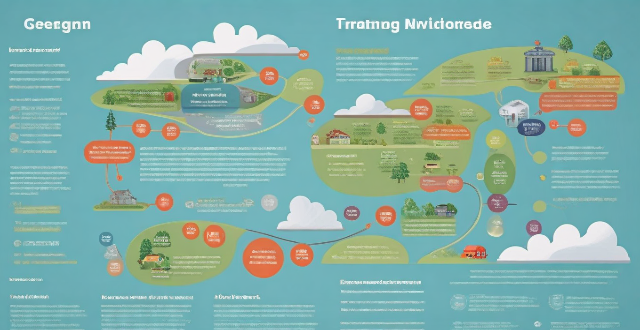Climate change can exacerbate mental health issues such as depression and anxiety through various pathways, including extreme weather events, displacement and loss of home, food insecurity, and economic stress. It is crucial for policymakers and healthcare professionals to recognize the connection between climate change and mental health and implement strategies to mitigate the adverse effects of climate change on mental well-being.

Can Climate Change Exacerbate Mental Health Issues such as Depression and Anxiety?
Introduction
Climate change is a global phenomenon that has been causing significant changes in the environment, leading to various health issues. One of the most concerning effects of climate change is its potential impact on mental health. In this article, we will explore whether climate change can exacerbate mental health issues such as depression and anxiety.
The Impact of Climate Change on Mental Health
Extreme Weather Events
Extreme weather events, such as hurricanes, floods, and wildfires, are becoming more frequent and severe due to climate change. These events can cause traumatic experiences for individuals, leading to psychological distress, anxiety, and depression. For example, survivors of natural disasters may experience post-traumatic stress disorder (PTSD) or acute stress disorder (ASD).
Displacement and Loss of Home
Climate change can also lead to displacement and loss of home due to rising sea levels, flooding, and other environmental factors. Losing one's home can be a traumatic experience that can trigger feelings of grief, sadness, and hopelessness, which are common symptoms of depression. Additionally, displacement can disrupt social support networks, increasing the risk of isolation and loneliness, which are known contributors to poor mental health outcomes.
Food Insecurity
Changes in temperature and precipitation patterns caused by climate change can affect crop yields and food production, leading to food insecurity. Food insecurity has been linked to increased rates of depression, anxiety, and other mental health disorders. Lack of access to nutritious food can also contribute to physical health problems, further exacerbating mental health issues.
Economic Stress
Climate change can have significant economic impacts, particularly on low-income communities and vulnerable populations. Economic stressors such as job loss, reduced income, and increased costs of living can contribute to feelings of hopelessness, helplessness, and despair, which are common symptoms of depression and anxiety. Moreover, economic stress can lead to substance abuse and self-harm behaviors as coping mechanisms for managing emotional distress.
Conclusion
In conclusion, climate change can indeed exacerbate mental health issues such as depression and anxiety through various pathways. Extreme weather events, displacement and loss of home, food insecurity, and economic stress are all potential mechanisms through which climate change can negatively impact mental health outcomes. It is crucial for policymakers and healthcare professionals to recognize the connection between climate change and mental health and implement strategies to mitigate the adverse effects of climate change on mental well-being.